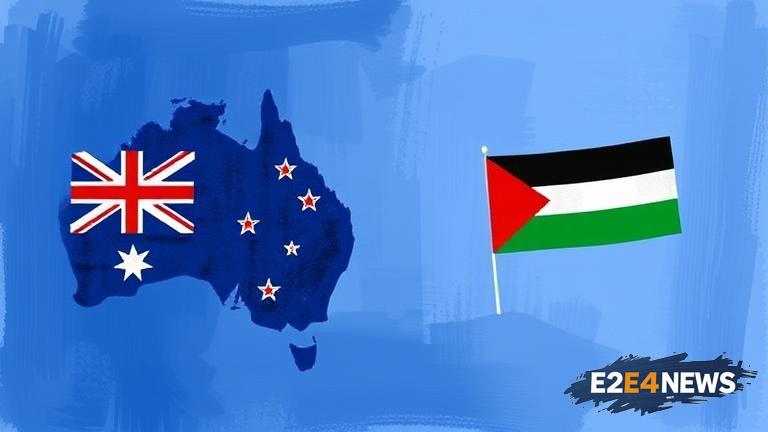The Australian Labor government, led by Prime Minister Anthony Albanese, has announced a major shift in its policy towards Gaza and Palestine. This move has been met with both praise and criticism from various quarters. The new policy, which has been in the works for several months, aims to recognize the state of Palestine, a decision that has been welcomed by many in the international community. The Labor government’s decision is seen as a significant departure from the previous Liberal government’s stance on the issue. The policy change has been driven by the government’s desire to promote peace and stability in the region. According to sources, the government has been engaged in extensive consultations with various stakeholders, including Palestinian and Israeli officials, to arrive at this decision. The recognition of Palestine as a state is expected to have far-reaching implications for the region and the world at large. The move is seen as a major victory for the Palestinian people, who have been fighting for statehood for decades. The Australian government’s decision is also expected to put pressure on other countries to follow suit. The policy change has been welcomed by many in the international community, including the United Nations, which has long recognized the right of the Palestinian people to self-determination. However, the decision has also been met with criticism from some quarters, including the Israeli government, which has expressed concerns about the implications of the move. Despite the criticism, the Australian government remains committed to its decision, citing the need to promote peace and stability in the region. The government has also emphasized its commitment to a two-state solution, which it believes is the only way to achieve lasting peace in the region. The policy change is also expected to have significant implications for Australia’s relations with other countries in the region. The government has stated that it will continue to work closely with its allies, including the United States, to promote peace and stability in the region. The decision has also been welcomed by many in the Australian community, including Palestinian Australians, who have been campaigning for recognition of Palestine for many years. The government’s decision is seen as a major step forward for the Palestinian community, which has faced significant challenges and injustices over the years. The recognition of Palestine as a state is also expected to have significant implications for the Israeli-Palestinian conflict, which has been ongoing for decades. The Australian government’s decision is seen as a major breakthrough in the peace process, which has been stalled for many years. The government has stated that it will continue to work towards a lasting peace in the region, which it believes is essential for the stability and security of the world. The policy change has also been welcomed by many in the academic community, who have long argued that recognition of Palestine is essential for promoting peace and stability in the region. The government’s decision is seen as a major victory for the Palestinian people, who have been fighting for statehood for decades. The recognition of Palestine as a state is expected to have far-reaching implications for the region and the world at large. The Australian government’s decision is also expected to put pressure on other countries to follow suit, which could lead to a major shift in the international community’s stance on the issue. The policy change has been driven by the government’s desire to promote peace and stability in the region, and to recognize the rights of the Palestinian people to self-determination. The government has stated that it will continue to work closely with its allies, including the United States, to promote peace and stability in the region. The decision has also been welcomed by many in the Australian community, including Palestinian Australians, who have been campaigning for recognition of Palestine for many years. The government’s decision is seen as a major step forward for the Palestinian community, which has faced significant challenges and injustices over the years.
